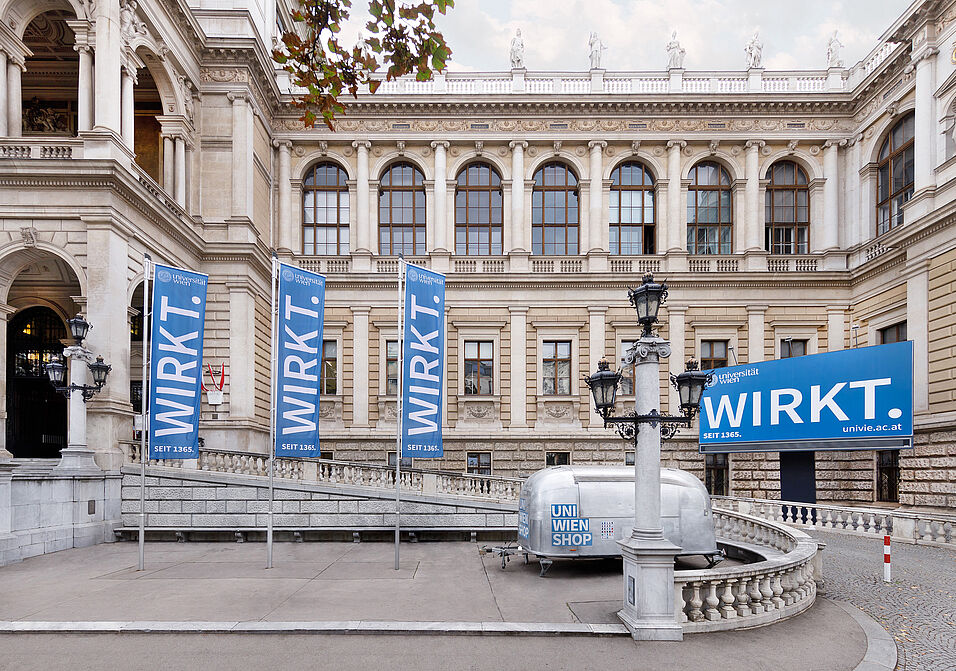The OMDS/VGSE Vienna Joint Economics seminar is held weekly on Thursdays during the term.
VJE-Seminars scheduled in November:
- Speaker: Jeanne Commault (Sciences Po)
- Title: Heterogeneity in MPC Beyond Liquidity Constraints: The Role of Permanent Earnings
- Time: Thursday, Nov. 28, 1:15 – 2:45 pm
- Location: Lecture Hall 9, OMP-1
- Abstract: The distribution of MPCs is central in many economic questions but presents puzzling stylized facts. I show that standard consumption models generate a positive relation between people’s permanent component of earnings and their MPC, because the MPC depends on liquid wealth but also on the variance of future earnings. This variance is higher at higher levels of permanent earnings. This relation can explain recent stylized facts. Survey data support a positive effect of permanent earnings on the MPC, of a magnitude comparable to that of wealth. Numerical simulations with realistic earnings risk replicate the survey results and stylized facts.
- Speaker: Lena Hensvik (Uppsala University)
- Title: Outside Job Opportunities and the Gender Gap in Pay
- Time: Thursday, Nov. 7, 1:15 – 2:45 pm
- Location: Lecture Hall 9, OMP-1
- Abstract: We show that men and women respond differently to improvements in outside options, and that these differential responses contribute to the gender pay gap. We develop a simple model of on-the-job search that integrates two crucial gender differences: job preferences and the propensity to renegotiate wages in response to external offers. Both factors contribute to lower wage responsiveness for women when they receive outside offers, and a negative female-male pay gap. However, women's job mobility responses vary depending on the underlying mechanism. To empirically test our model's predictions, we analyze the wage and job mobility responses of men and women to external job opportunities, mediated through family networks. Using Swedish register data, we find that improved outside options are associated with higher within-job wage growth for men but not for women. In contrast, women have greater job mobility, particularly when the new positions offer higher pay and a shorter commute than their current jobs. Importantly, we can rule out that these gendered responses arise from differences in the quality of external offers as these are balanced across genders by design. In light of the model, our findings indicate that women are less likely than men to renegotiate in response to improved outside options. Differences in negotiation behavior between women and men can thus be a significant source of the remaining within-job gender pay gap.
- Speaker: Konstantin Egorov (University of Antwerp)
- Title: Trade Sanctions (joint work with V. Korovkin, A. Makarin, and J. Nigmatulina)
- Time: Thursday, Nov. 14, 1:15 – 2:45 pm
- Location: Lecture Hall 9, OMP-1
- Abstract: How effective are trade sanctions? We examine the economic impact of unprecedented sanctions imposed on Russia following February 2022, when Western countries banned the exports of close to 40% of all country-product varieties Russia had been importing prior to the war. By combining data on the universe of international trade transactions, domestic railway shipments, firm balance sheets, and government procurement data before and after the sanctions' imposition, we provide the most comprehensive analysis of the economic impact of trade sanctions to date. Using a difference-in-differences approach, we find that the sanctioned country-product imports experienced a sharp 62% decline compared to non-sanctioned import flows following the war's onset. The total imports of sanctioned products into Russia fell by only a slightly smaller magnitude, suggesting that roundabout trade and substitution only partially compensated the decline in sanctioned imports. Notably, firms that relied on to-be-sanctioned imports saw a 15% reduction in output. This pattern is observed even for firms that are part of military-adjacent supply chains. Overall, our findings suggest that, despite widespread anecdotal evidence that sanctions' effectiveness was undermined by substitution and evasion, the sanctions on Russian imports had an adverse impact on the Russian economy.
- Speaker: Jakub Kastl (Princeton University)
- Title: Computing Counterfactuals in Pricing Games with Application to Valuing the Primary Dealer Status (with E. Richert and J. Rudiger)
- Time: Thursday, Nov. 21, 1:15 – 2:45 pm
- Location: Lecture Hall 9, OMP-1
- Abstract: We introduce a method for computing counterfactual equilibria in pricing games. Our key observation is that in many problems the function that we are trying to solve for, such as a tariff function in price discrimination games or a bid function in auctions, can be arbitrarily closely approximated by a finite-dimensional step function, and the individual segments in this approximation can be solved for by formulating a sequential program. The sequential formulation allows us to efficiently find the global solution in the set of step-functions. This presents a major advantage over other methods for which local optimization is often easy, but global optimization costly. We provide Monte Carlo evidence to illustrate the performance of the method in asymmetric auctions and nonlinear pricing games. We then examine two applications to highway procurement auctions and shrinkflation and show that our method leads to increases in accuracy, decreases in model restrictions required and computational gains. Finally, we apply the method to estimate the value of primary dealer status in Argentinian treasury auctions.

